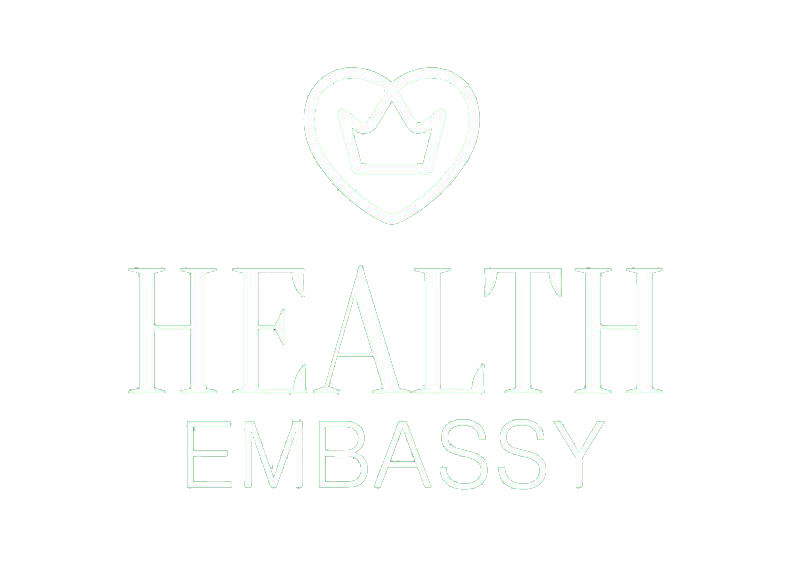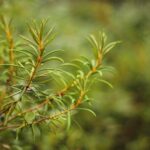April 21, 2022
Best herbs for hair, skin and nails
Horsetail Herb – is irreplaceable in the care of hair and nails. This is mainly due to the exceptionally high silicon content: it accounts for up to 10% of all mineral substances contained in the plant. Silicon is essential for the proper functioning of all cells of the body, but it plays a special role in the cells of the skin, hair and nails because it is their important building material.
Suggested use: Strengthening decoction Take 2 tablespoons of Horsetail Herb and pour 2 cups of warm water, bring to a boil and slowly cook covered for 15 minutes, then strain. Drink half of glass 3 times a day. With decoction, you can also make a compress that will help fight dandruff, prevent greasy hair and hair loss. Wash rinsed hair with the decoction, lightly squeeze, wrap the head with a towel. After 20 minutes, rinse your hair with lukewarm water.
Stinging Nettle – we know that it burns because the whole plant is covered with hairs containing formic acid. But Stinging Nettle has also other ingredients. Its leaves contain provitamin A, vitamins K, C, B2 and B6, tannins, organic acids, flavonoids and minerals: calcium, iron, sulphur, phosphorus, potassium, sodium, iodine. And its roots are rich in lecithin, silica, polysaccharides, compounds similar to lipids and numerous mineral salts. A set of these substances is a real "health elixir" for skin, hair and nails. For example, vitamin A enhances the production of the main building blocks of hair and nails – keratin and protects them from the destructive influence of toxins.
Suggested use: tincture Mix 10 g of herb and 100 ml of alcohol, pour into a jar, close, leave in a dark place for 2 weeks. Once a week, rub the tincture into the scalp and hair, brush and leave to dry. Wash your head the next day.
Burdock Root – the root contains the most valuable substances used in herbal medicine: polyacetylene, essential oil, tannins, silicic acid, sulphur, phosphorus, vitamin C. This set of substances has beneficial effects on the hair – renews their damaged structure, nourishes and strengthens hair follicles, stimulates the growth, inhibits hair loss. It also prevents excessive greasing of the hair. The silica and phytosterols in burdock help soothe irritated scalp conditions like dandruff.
Suggested use: Burdock hair conditioner A handful of dried and shredded burdock root mix with half of cup of oil and leave in a dark place for 3 weeks. Store it in a dark glass jar. To regenerate dry and brittle hair, apply oil once a week and evenly spread it with a comb. Cover your hair with a towel. After 30 minutes, wash your head with a delicate shampoo.
Calamus Rhizome – calamus grows on the banks of ponds, lakes, and rivers. The rhizome is rich in essential oils, terpenes, tannins, organic acids, vitamin C, mineral salts. The plant has anti-inflammatory, effects, and externally applied, it inhibits dandruff and baldness, improves the blood circulation of the scalp, and stimulates hair growth.
Suggested use: decoction Take 2 tablespoons of shredded rhizome and pour half-liter warm water, cook covered for 15 minutes. Leave to cool, strain. After washing the hair, rinse with decoction, lightly massaging the head. Gently wipe the hair with a towel and let it dry.
Suggested use: Strengthening decoction Take 2 tablespoons of Horsetail Herb and pour 2 cups of warm water, bring to a boil and slowly cook covered for 15 minutes, then strain. Drink half of glass 3 times a day. With decoction, you can also make a compress that will help fight dandruff, prevent greasy hair and hair loss. Wash rinsed hair with the decoction, lightly squeeze, wrap the head with a towel. After 20 minutes, rinse your hair with lukewarm water.
Stinging Nettle – we know that it burns because the whole plant is covered with hairs containing formic acid. But Stinging Nettle has also other ingredients. Its leaves contain provitamin A, vitamins K, C, B2 and B6, tannins, organic acids, flavonoids and minerals: calcium, iron, sulphur, phosphorus, potassium, sodium, iodine. And its roots are rich in lecithin, silica, polysaccharides, compounds similar to lipids and numerous mineral salts. A set of these substances is a real "health elixir" for skin, hair and nails. For example, vitamin A enhances the production of the main building blocks of hair and nails – keratin and protects them from the destructive influence of toxins.
Suggested use: tincture Mix 10 g of herb and 100 ml of alcohol, pour into a jar, close, leave in a dark place for 2 weeks. Once a week, rub the tincture into the scalp and hair, brush and leave to dry. Wash your head the next day.
Burdock Root – the root contains the most valuable substances used in herbal medicine: polyacetylene, essential oil, tannins, silicic acid, sulphur, phosphorus, vitamin C. This set of substances has beneficial effects on the hair – renews their damaged structure, nourishes and strengthens hair follicles, stimulates the growth, inhibits hair loss. It also prevents excessive greasing of the hair. The silica and phytosterols in burdock help soothe irritated scalp conditions like dandruff.
Suggested use: Burdock hair conditioner A handful of dried and shredded burdock root mix with half of cup of oil and leave in a dark place for 3 weeks. Store it in a dark glass jar. To regenerate dry and brittle hair, apply oil once a week and evenly spread it with a comb. Cover your hair with a towel. After 30 minutes, wash your head with a delicate shampoo.
Calamus Rhizome – calamus grows on the banks of ponds, lakes, and rivers. The rhizome is rich in essential oils, terpenes, tannins, organic acids, vitamin C, mineral salts. The plant has anti-inflammatory, effects, and externally applied, it inhibits dandruff and baldness, improves the blood circulation of the scalp, and stimulates hair growth.
Suggested use: decoction Take 2 tablespoons of shredded rhizome and pour half-liter warm water, cook covered for 15 minutes. Leave to cool, strain. After washing the hair, rinse with decoction, lightly massaging the head. Gently wipe the hair with a towel and let it dry.
Herbs for strong nails
You can soak your nails in herbal tea. Just brew the tea slightly stronger than when made for drinking (add 3-4 teaspoons) and soak the nails for approximately 15 minutes once a week. Some people add also oil and mix it with tea. You can do it with Horsetail Herb, Burdock Root and Stinging Nettle (you can combine it with Flaxseeds to make a jelly/gruel). After a few weeks, they will be beautiful, healthy, and strong.
Herbs for healthy skin
Burdock Root – a tea is very helpful in some skin diseases, such as acne, psoriasis, seborrhoea.
Wild Pansy Herb – it has active substances that bind harmful products of metabolism and remove them from the body. It helps smooth the complexion and fight acne.
Suggested use: tea Take 2 teaspoons of dried herb and pour a glass of boiling water and leave to infuse. After 15 min, strain, drink a cold infusion twice a day for 14 days.
Red Clover Flower – it has been used to help soothe the red, scaly, itchy patches of skin (eczema).
Suggested use: steep one to two teaspoons of dried flowers in hot water for half an hour, and sip two to three cups daily to reap the benefits or you can make a poultice.
Green tea – topical green tea can also help thicken the epidermis, speed the healing of wounds, and inhibit an enzyme in your skin that causes uneven pigmentation, which means fewer sunspots. Green tea also reduces cell damage and the risk of sunburn.
Simply boil the water and add the green tea leaves. You should add enough green tea so that the mixture resembles a thick mixture like oatmeal. Boil the water and allow the tea to sit for at least five minutes. Leave to cool down enough to touch, strain out the tea leaves and press mixture with the clean cloth to the affected skin.
Disclaimer: The information provided in this blog is for informational purposes only and is not a substitute for professional medical advice. Before you use any herbs or natural treatments, consult with your doctor, especially if you have any health conditions or are taking prescription medications.
Wild Pansy Herb – it has active substances that bind harmful products of metabolism and remove them from the body. It helps smooth the complexion and fight acne.
Suggested use: tea Take 2 teaspoons of dried herb and pour a glass of boiling water and leave to infuse. After 15 min, strain, drink a cold infusion twice a day for 14 days.
Red Clover Flower – it has been used to help soothe the red, scaly, itchy patches of skin (eczema).
Suggested use: steep one to two teaspoons of dried flowers in hot water for half an hour, and sip two to three cups daily to reap the benefits or you can make a poultice.
Green tea – topical green tea can also help thicken the epidermis, speed the healing of wounds, and inhibit an enzyme in your skin that causes uneven pigmentation, which means fewer sunspots. Green tea also reduces cell damage and the risk of sunburn.
Simply boil the water and add the green tea leaves. You should add enough green tea so that the mixture resembles a thick mixture like oatmeal. Boil the water and allow the tea to sit for at least five minutes. Leave to cool down enough to touch, strain out the tea leaves and press mixture with the clean cloth to the affected skin.
Disclaimer: The information provided in this blog is for informational purposes only and is not a substitute for professional medical advice. Before you use any herbs or natural treatments, consult with your doctor, especially if you have any health conditions or are taking prescription medications.





